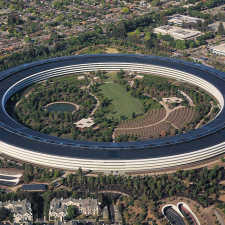The walled garden of Apple that provides a safe and secure environment for its users is facing a significant threat as the US Department of Justice has filed a civil lawsuit against the tech giant. The lawsuit alleges that Apple has been illegally maintaining a monopoly, potentially breaking down the barriers that lock users within its ecosystem.
This legal battle represents a nightmare scenario for Apple, challenging its strict security measures that some view as a strategy to monopolize the use of iOS hardware. The lawsuit, filed by the US Department of Justice and 16 state and district attorneys general, aims to dismantle the walls created by Apple and allow users to explore beyond its confines.
Apple’s defense of its security measures as protection for its users is questioned by critics who see it as a means to drive up prices uncontested and create reliance on Apple technology. The lawsuit seeks to prevent Apple from setting and enforcing rules for consumers, developers, publishers, and artists who interact with its technology.
Security Colliding with Monopoly
The lawsuit highlights Apple’s restrictive practices towards developers and the control it exerts over its ecosystem. The US Department of Justice argues that Apple’s actions lead to inflated prices, impose limitations on developers, restrict critical access, and create compatibility issues that hinder users from switching hardware. For example, Apple Watches are required to be paired with an iPhone, limiting compatibility with third-party watches.
Accusations of Apple blocking cloud streaming apps that could lower hardware requirements and costs further emphasize the alleged abuse of monopoly power. The Department of Justice claims that Apple extracts more money from consumers, developers, content creators, and small businesses by leveraging its dominant position in the market.
Apple’s Response
Fred Sainz, Apple’s spokesperson, defended the company’s practices, stating that the lawsuit threatens Apple’s core principles. Apple believes that the lawsuit undermines its ability to innovate and create technology that users expect, intertwining hardware, software, and services. The company intends to vigorously defend against the legal challenge.
Following the enactment of the EU’s Digital Markets Act, alternative app stores have emerged in Europe, marking a shift towards a more open operating system. While users in Europe have access to these alternatives, users outside the region are left without the same options, except for receiving new emojis.
If the US Department of Justice succeeds in its legal battle, Apple users in the US could witness significant changes to the ecosystem and potentially experience a more open environment beyond the walled garden.


